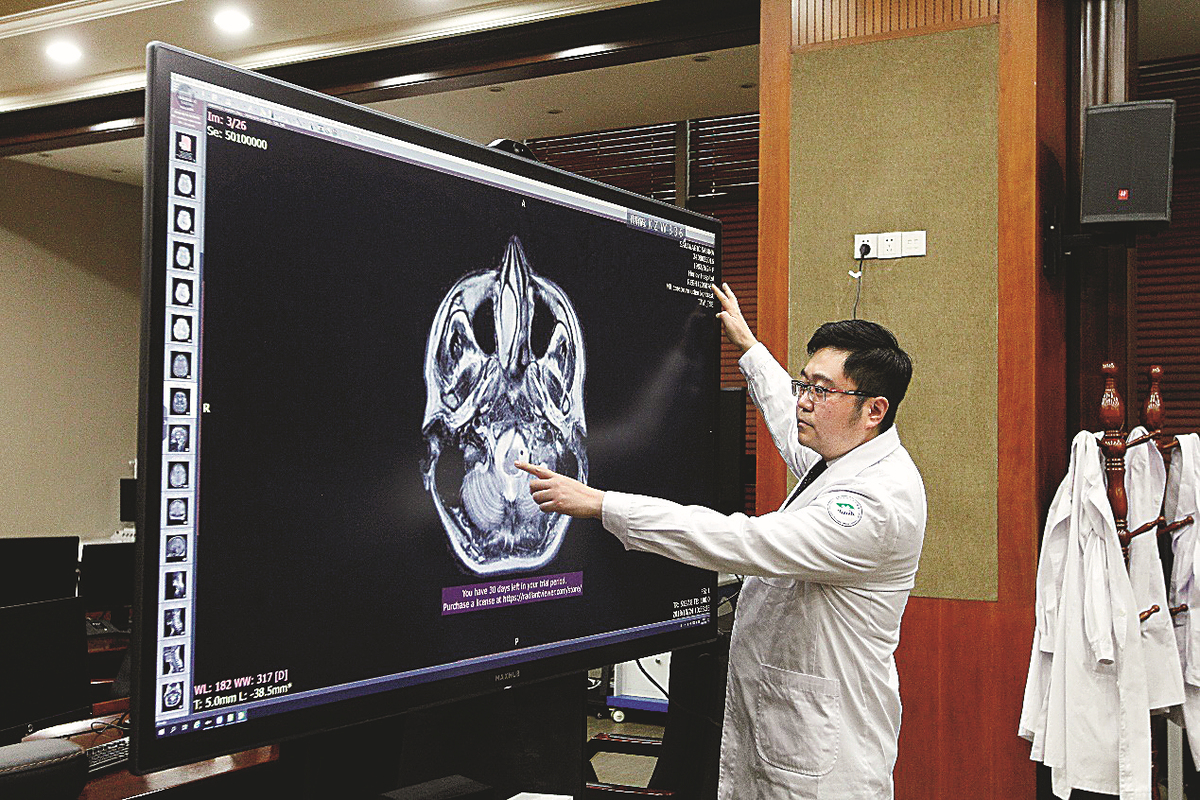Tele-diagnosis from Chongqing changes Dane's life


"It was a relief to finally know what was causing my symptoms. I have been searching for answers for 10 years," said "Sabrina" (not her real name), a patient from Denmark.
Recently, she consulted Li Qi, a neurologist at the First Affiliated Hospital of Chongqing Medical University, via 5G tele-medical remote diagnosis to figure out her problem.
Sabrina initially contacted Li by email in January, stating that she had a complicated neurological issue and hoped for his help.
She said over the course of 10 years, she had sought medical treatment in several European countries besides her own, including Germany and France, but that her condition had continued to worsen as its cause could not be found.
A French neurologist suspected the trouble might be vertebral artery compression syndrome, a rare neurological disease unknown until it was first defined by Li in 2019, so Sabrina decided to contact him directly and request a remote consultation.
"Never have I experienced so much empathy," she said.
Li, who has diagnosed many patients from the United States, Australia and India, offered a free analysis. He conducted a detailed examination via internet by reading the patient's original radiological data and examining her via video. He diagnosed her condition as VACS and drew up a treatment plan.
Sabrina told Li that she and her family had contracted COVID-19 and she would visit him in person when she was able.
"Doctor Li is a very sweet, down-to-earth and capable person. He took time to explain my diagnosis and treatment options," the Danish patient said. "He is passionate about his profession and is a curious listener, which reassured me about diagnosis by him."
Besides serving as a physician, Li, 38, also teaches neurology at Chongqing Medical University. He received postdoctoral training at Harvard Medical School and the University of Melbourne, and was previously a National Institutes of Health StrokeNet fellow in the United States.
A few years ago, he found a set of patients showing clinical symptoms such as vertigo and progressive limb weakness or numbness that could not be explained by existing diagnoses. After lengthy research and connecting cases, he established the clinical diagnostic criteria for VACS.
In 2019, Li published a paper on the subject in Frontiers in Neurology, a leading journal in its field, which was viewed and downloaded 27,000 times and cited by neurologists worldwide.
His paper laid the foundation for the early identification, diagnosis and treatment of the syndrome.
In March, armed with Li's report, Sabrina was re-diagnosed with VACS at a hospital in Germany and is now considering surgery.
"The clinical features of the condition are complicated and difficult to diagnose," said Li, adding that he spent many years collecting cases before proposing his diagnosis of the rare medical condition.
"I feel all my work has paid off now that I know it has helped doctors all over the world understand the syndrome better, avoid misdiagnosis and provide early treatment and cures for patients."
- China Coast Guard dismantles illegal fish traps to safeguard sailing security in South China Sea
- Mainland denounces Taiwan-US trade deal as 'sellout pact'
- Beijing becomes China's second 5-trillion-yuan economy in 2025
- Strengthening trade bonds benefits people across Taiwan Strait: spokesperson
- Chinese researchers develop eye surgery robot
- High-speed train staff members in Beijing busy preparing for Spring Festival travel rush




































